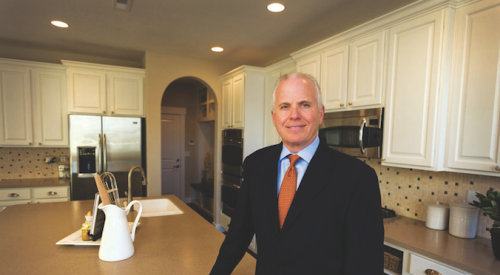|
Keith Johnson, Peter Ochs and Frank Foster
|
Newport Beach, Calif.-based Fieldstone Communities launched in 1981 with an exit strategy already in place. Peter Ochs and partner Keith Johnson formed Fieldstone in the midst of a recession with Ochs' plan to retire at age 50 cast in stone.
Ochs retired in 1993, and Johnson took over as CEO, leading the Southern California Giant until his retirement in 2001. Current CEO Frank Foster then became Fieldstone's first leader from the second generation of management. From the beginning, Fieldstone had a nepotism rule that prohibits relatives of senior officers from working in the firm.
Estate planning for the business was always a goal. To keep the company operating as a private firm through multiple generations, Fieldstone articulates its target to be a river, not a puddle, in Ochs' words. It checks in at No. 55 in this year's GIANTS rankings on 800 closings in 2002 for $291 million in revenue. The firm also operates in Salt Lake City and recently purchased a small San Antonio builder, Anchor Homes, to get a foothold in Texas.
Ochs and Johnson studied companies that lasted 50 to 300 years for clues on how to achieve corporate longevity. One key: "Soft edges," Johnson says. "None of the 300-year-old firms is in the same business as in past centuries. Every couple of generations, they morph into a new line of trade. The moves to Utah and Texas are something Peter and I never envisioned in the 1980s."
Another key: "You can't just transfer ownership from one generation to the next all at once," Ochs says. "But the current management team needs a strong ownership stake in the company - real equity, not just stock options." So Ochs and Johnson transfer shares to the current team steadily, each quarter, in a drumbeat that will ease them out of majority ownership.
"It's important for the current management team to behave like owners," Foster says. "And we do. All our decisions are made with a long-range perspective. Eventually our equity positions will be a big part of all our net worths."












